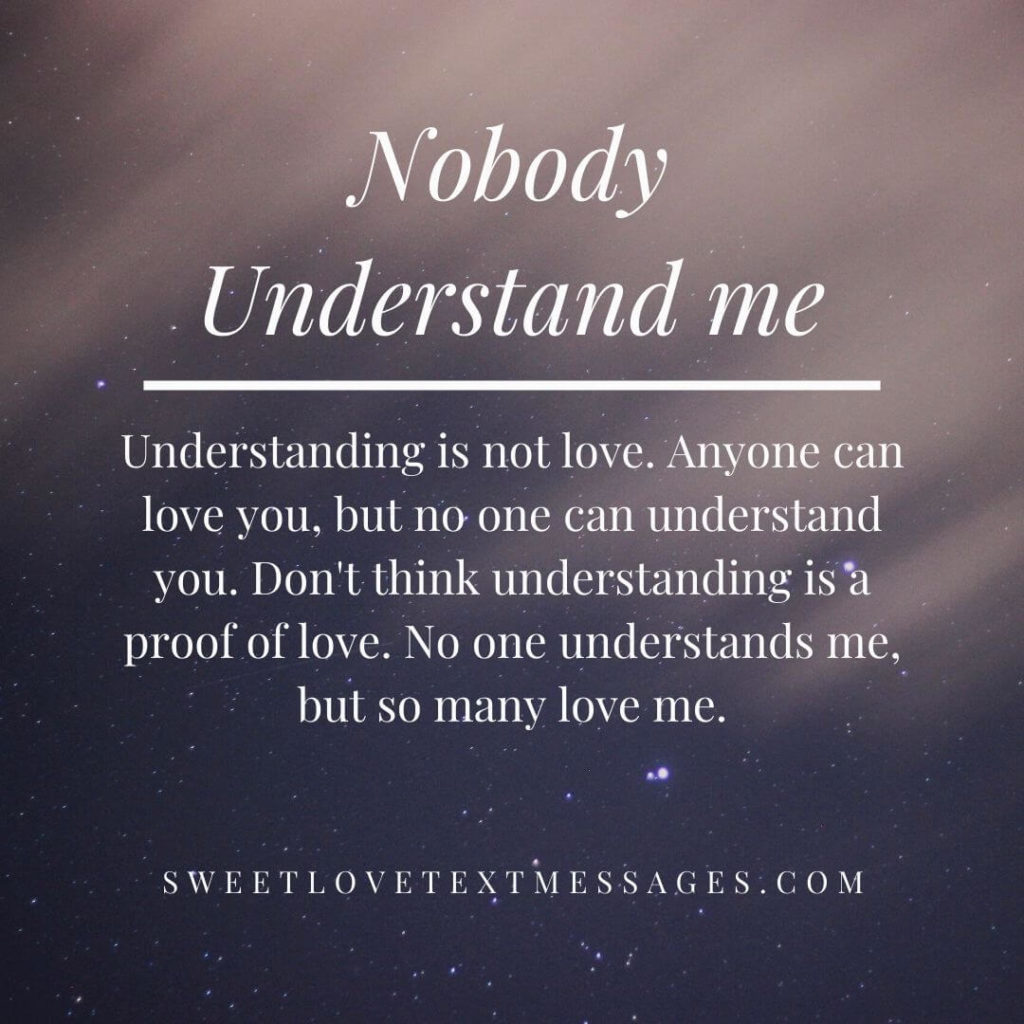Feeling misunderstood is a pervasive phenomenon that many people grapple with throughout their lives. This sentiment can wax and wane, influenced by circumstances, relationships, and internal beliefs. In this exploration, we delve into the multifaceted reasons behind the feeling of being misapprehended, gazing into the emotional landscapes that accompany this experience.
The Roots of Misunderstanding
Understanding is predicated upon effective communication. When there is a deficit in this fundamental aspect, misunderstandings burgeon. Contributing factors often include:
- Communication Styles: Each individual has a unique approach to expressing thoughts and emotions. Misalignments in communication styles—be it direct versus indirect, emotional versus rational—can lead to misinterpretation of intentions.
- Cultural Background: Cultural differences deeply influence how individuals interpret actions and words. What may seem innocuous to one person might be interpreted as offensive or dismissive to another.
- Personal Narrative: Everyone possesses a narrative through which they perceive the world. Those who have experienced trauma or significant challenges may filter their understanding through a lens colored by their past, further complicating interpersonal dynamics.
The Emotional Toll of Feeling Misunderstood
When individuals perceive a lack of understanding, a cascade of emotions often ensues:
- Isolation: A profound sense of loneliness can emerge, as individuals feel that their thoughts and emotions are not valued or recognized. This isolation can be exacerbated by social media, where curated personas often mask authentic struggles.
- Frustration: Frequently having to explain oneself can lead to irritation and a sense of helplessness. When efforts to clarify are met with blank stares or dismissive attitudes, frustration can reach a boiling point.
- Self-Doubt: Persistent feelings of being misunderstood can ultimately lead to questioning one’s self-worth. Individuals may wonder whether their thoughts are valid or if they are merely overreacting.
Defining Moments of Misunderstanding
Several situations can exacerbate feelings of being misunderstood:
- Relationships: In intimate relationships, the stakes are higher. When partners fail to grasp each other’s feelings or needs, it may result in conflicts or emotional distance. Misunderstandings in these spaces can feel particularly acute.
- Workplace Dynamics: Professional environments can also be rife with misunderstandings, often stemming from differing communication styles or hierarchical structures. A misinterpreted comment or a misalignment on a project can lead to larger conflicts.
- Online Interactions: In our digital age, many individuals communicate through text, which eliminates non-verbal cues. Without these cues, messages can be misconstrued, amplifying the sense of alienation.
Strategies for Navigating Misunderstandings
Despite the emotional turmoil stemming from feeling misunderstood, there are strategies that can aid individuals in navigating these waters:
- Active Listening: Engaging in active listening can foster understanding. By truly paying attention to the speaker and reflecting on their concerns, individuals can mitigate misunderstandings.
- Open Communication: Expressing feelings of being misunderstood can be daunting yet essential. Utilizing “I” statements shifts the focus from blaming to sharing personal experiences, paving the way for compassionate dialogue.
- Emotional Validation: Seeking to validate one’s own emotions, as well as those of others, creates an environment wherein all parties feel acknowledged. Simple affirmations of feelings can bridge gaps in understanding.
The Role of Empathy
Empathy functions as a powerful antidote to misunderstanding. By consciously attempting to understand another’s perspective, individuals can cultivate connections and dissolve barriers:
- Developing Perspective-Taking: This involves stepping beyond one’s experiences to grasp the emotions and thoughts of others. Perspective-taking fosters a deeper bond and enhances interpersonal relationships.
- Practicing Patience: Allowing time for conversations to unfold naturally can prevent hasty conclusions that might breed further misunderstanding. A patient approach invites clarity.
Embracing Authenticity
Lastly, authenticity plays a crucial role in alleviating feelings of misunderstanding. When individuals embrace their true selves, they create fertile ground for genuine relationships:
- Honoring Vulnerability: Embracing vulnerability can facilitate deeper connections. Authentic expression encourages others to reciprocate and often leads to mutual understanding.
- Letting Go of Perfectionism: A relentless pursuit of perfection often leads to a fear of judgment. By accepting flaws, individuals can engage with others more honestly.
In conclusion, the sensation of being misunderstood is woven intricately into the human experience. While it can lead to feelings of isolation and frustration, understanding the underlying factors can foster compassion. Through active listening, empathy, and embracing authenticity, the profound chasm of misunderstanding can be bridged. In this quest for understanding, individuals can transform their emotional experiences and foster deeper connections, ultimately finding solace in shared humanity.

